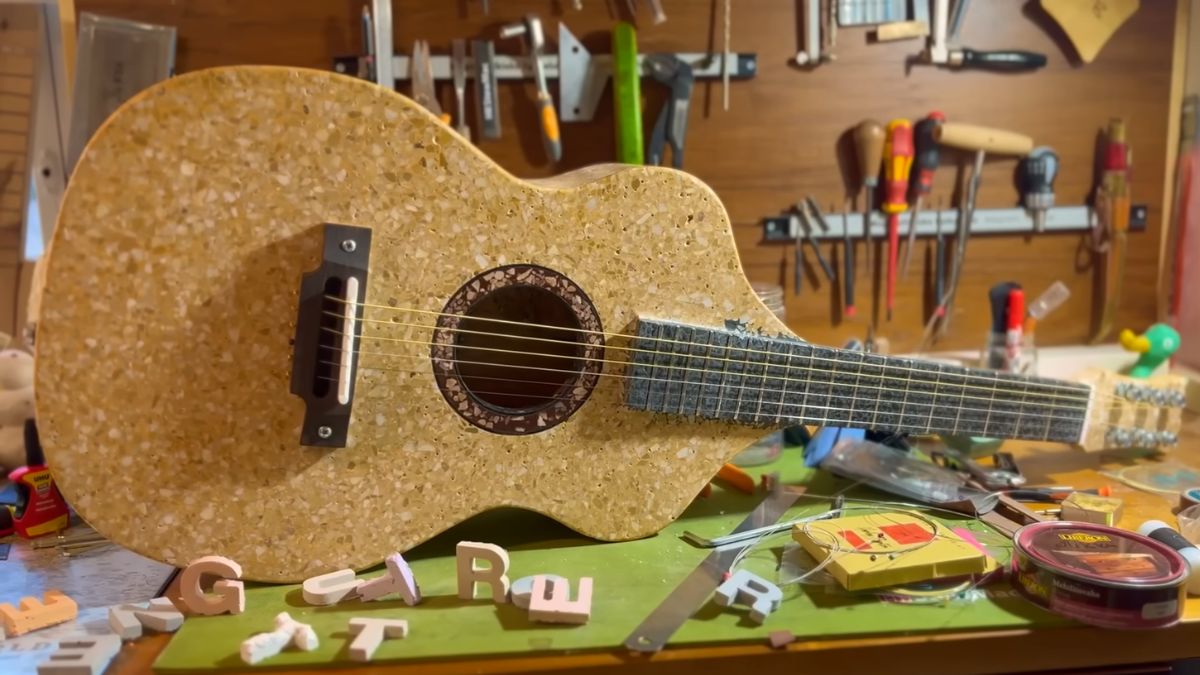“One of my top favorite guitars of all time”: Epiphone debuts the Adam Jones 1979 Les Paul Custom – and it's got a Gibson-style headstock
The Tool man’s signature model follows the Kirk Hammett Greeny Les Paul in featuring an ‘open book’ style headstock, plus a classy Custom Shop-tier neck pickup
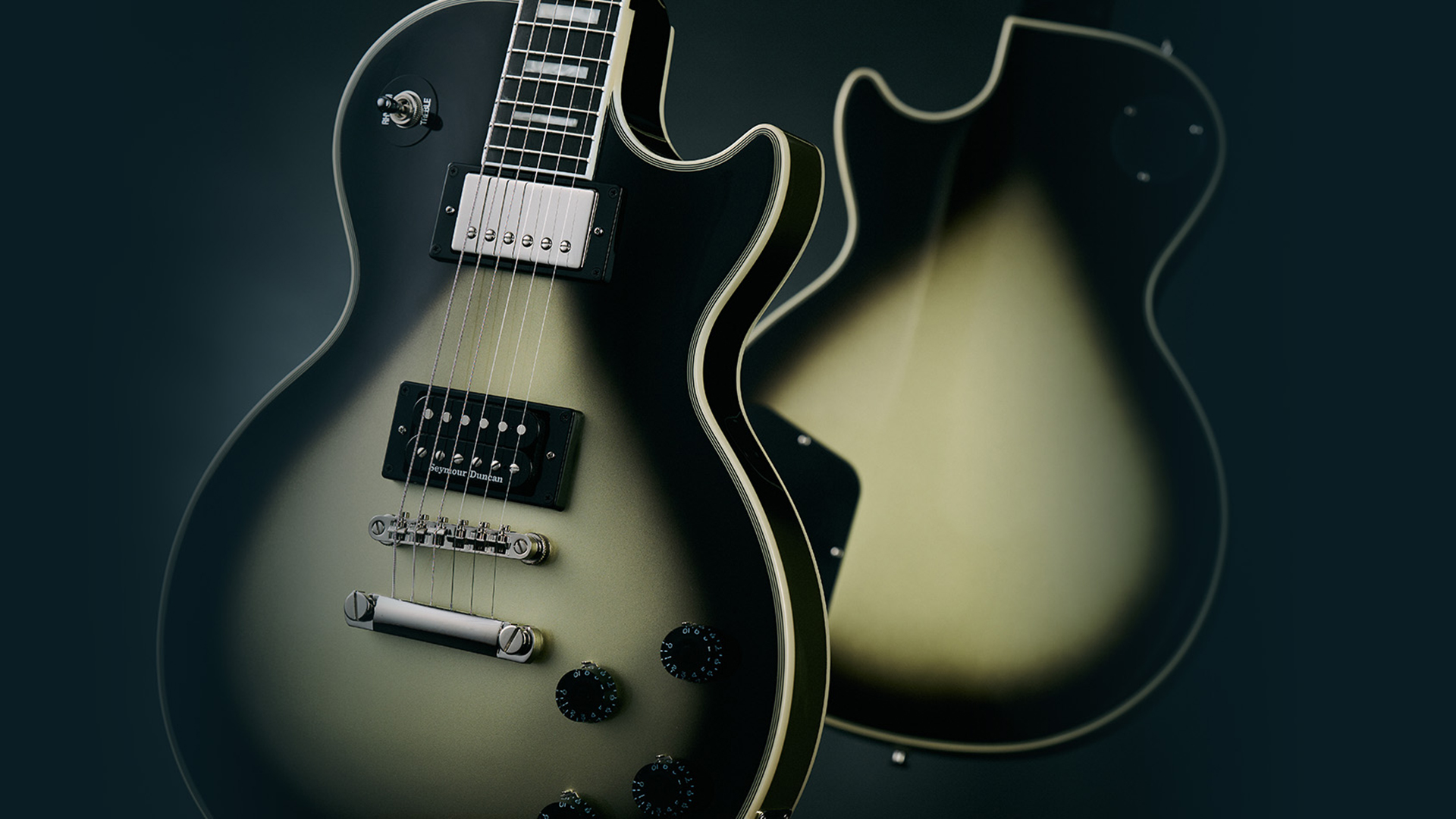
Epiphone has unveiled the Adam Jones Les Paul Custom – a new signature guitar for the Tool guitarist – and the first ‘standard’ line model from the brand, following its stunning run of Limited Edition Custom Art guitars for Jones.
The announcement is also notable as the latest take on Jones’ LP features the Gibson-like ‘open book’ headstock, as opposed to the larger and more rounded Epiphone ‘Kalamazoo’ era headstock – making it only the second guitar in the current line-up to do so.
The first Epiphone model to feature the headstock (since the takeover of parent-company Gibson Brands in 2018) was, of course, Kirk Hammett’s Greeny, though at the time Gibson Brands’ VP of Product Mat Koehler promised that more would be on the way in Epiphone’s top-tier ‘Inspired by Gibson Custom Shop’ builds.
Now the firm is making good on that promise and is once again treading the tricky line between ‘luxe’ and affordable. As such, its latest recreation of Jones’ beloved 1979 Gibson Les Paul Custom – dubbed by the Tool pioneer as “one of my top favorite guitars of all time” – is a Chinese-built model that features a pretty serious spec list.
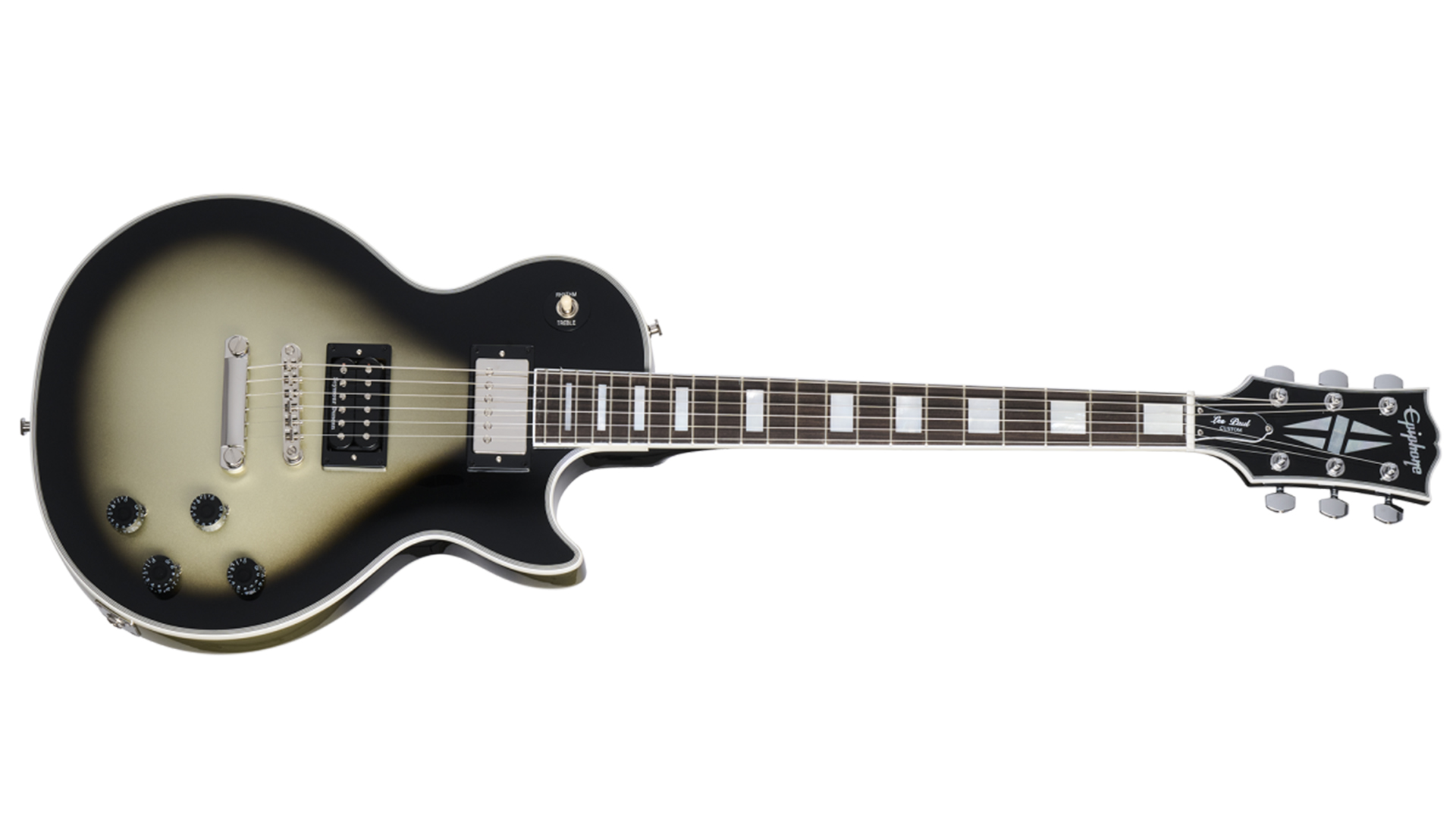
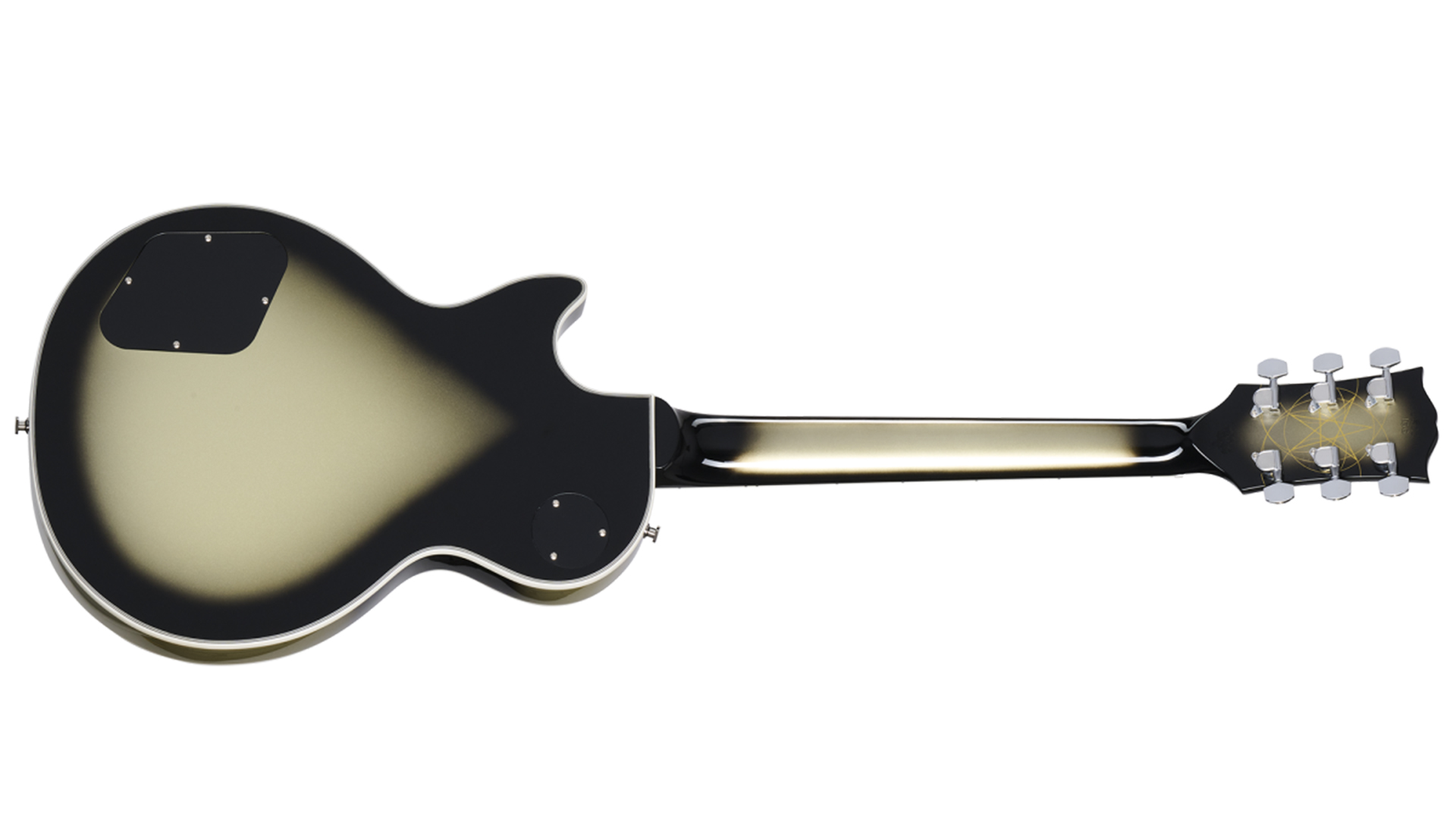
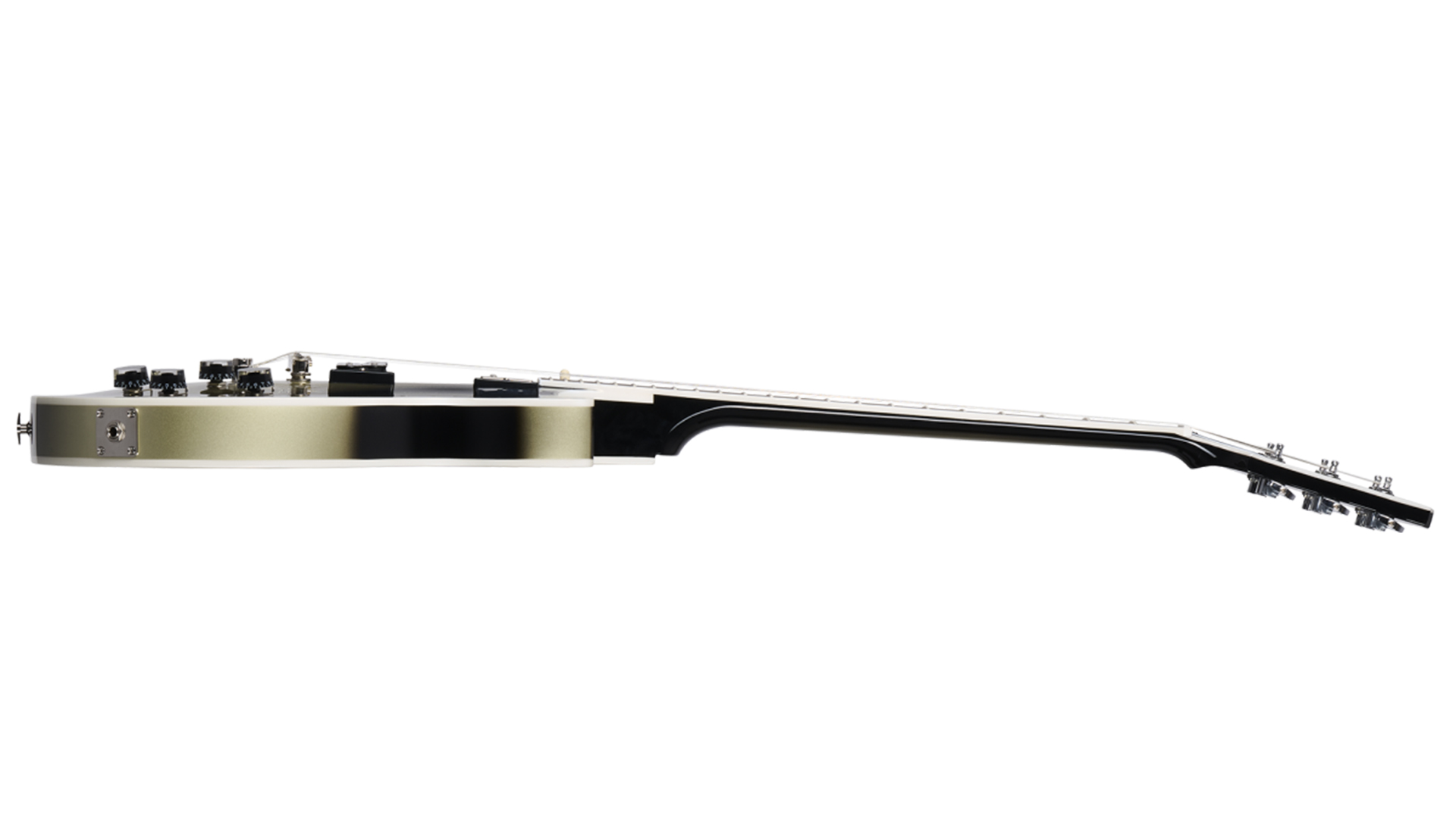
There’s a mahogany body with a maple cap and, as with the original, a three-piece custom-profile maple neck and ebony fretboard.
The most notable diversion from the Custom Art series and, in keeping with its predecessor from the Gibson Custom Shop, is a reverse-mounted Gibson Custombucker in the neck position, but here it’s paired with a Seymour Duncan Distortion (as opposed to a custom-wound Seymour Duncan DDJ).
Electronics include CTS pots and Orange Drop capacitors, then there’s Epiphone hardware and a GraphTech nut, plus some unique finish quirks – not least the distinctive Silverburst.
Get The Pick Newsletter
All the latest guitar news, interviews, lessons, reviews, deals and more, direct to your inbox!
We love the look of that tear-drop burst pattern on the rear of the guitar, plus there’s a custom headstock graphic – a nod to the Jones’ art-fuelled limited edition models, designed by Joyce Su and Jones.
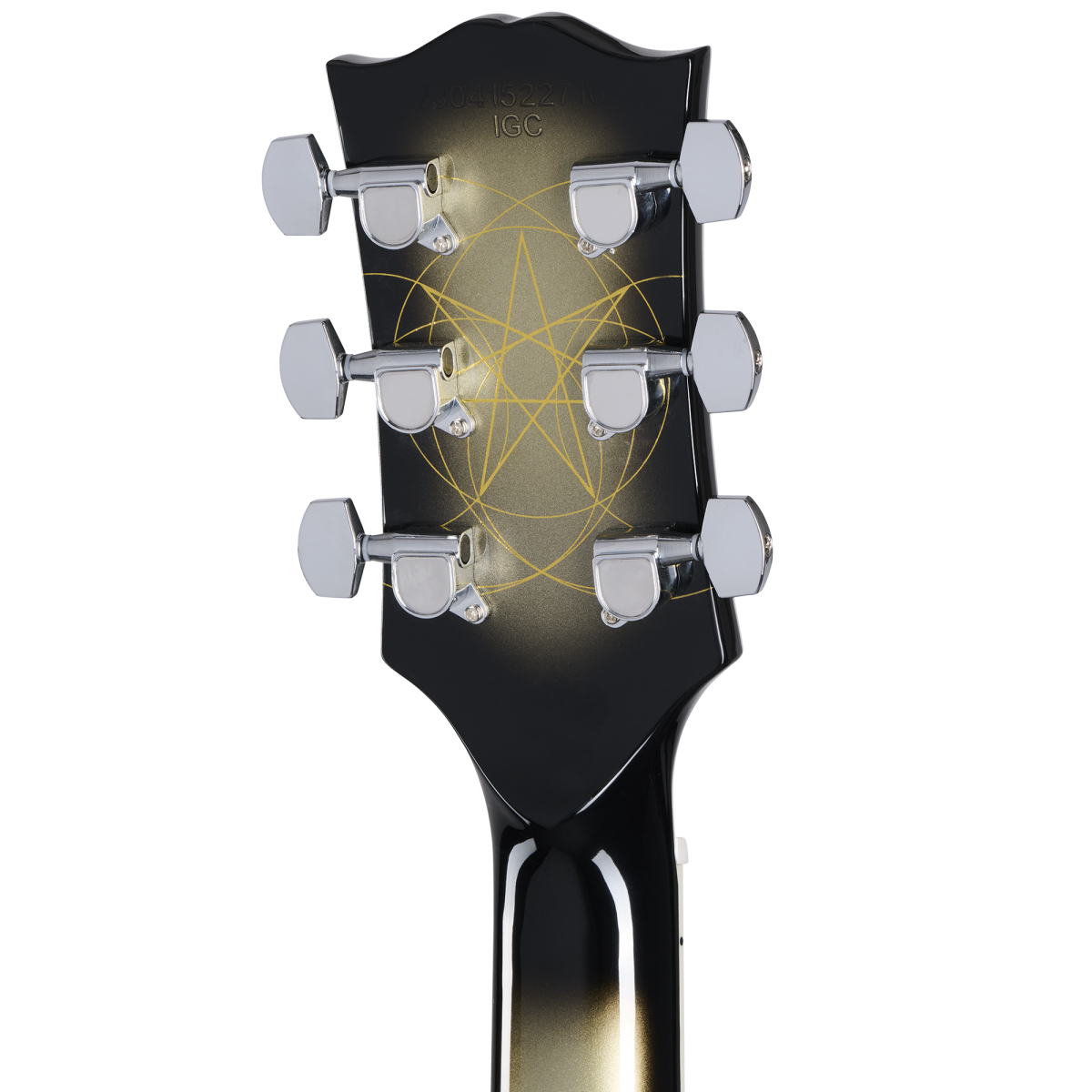
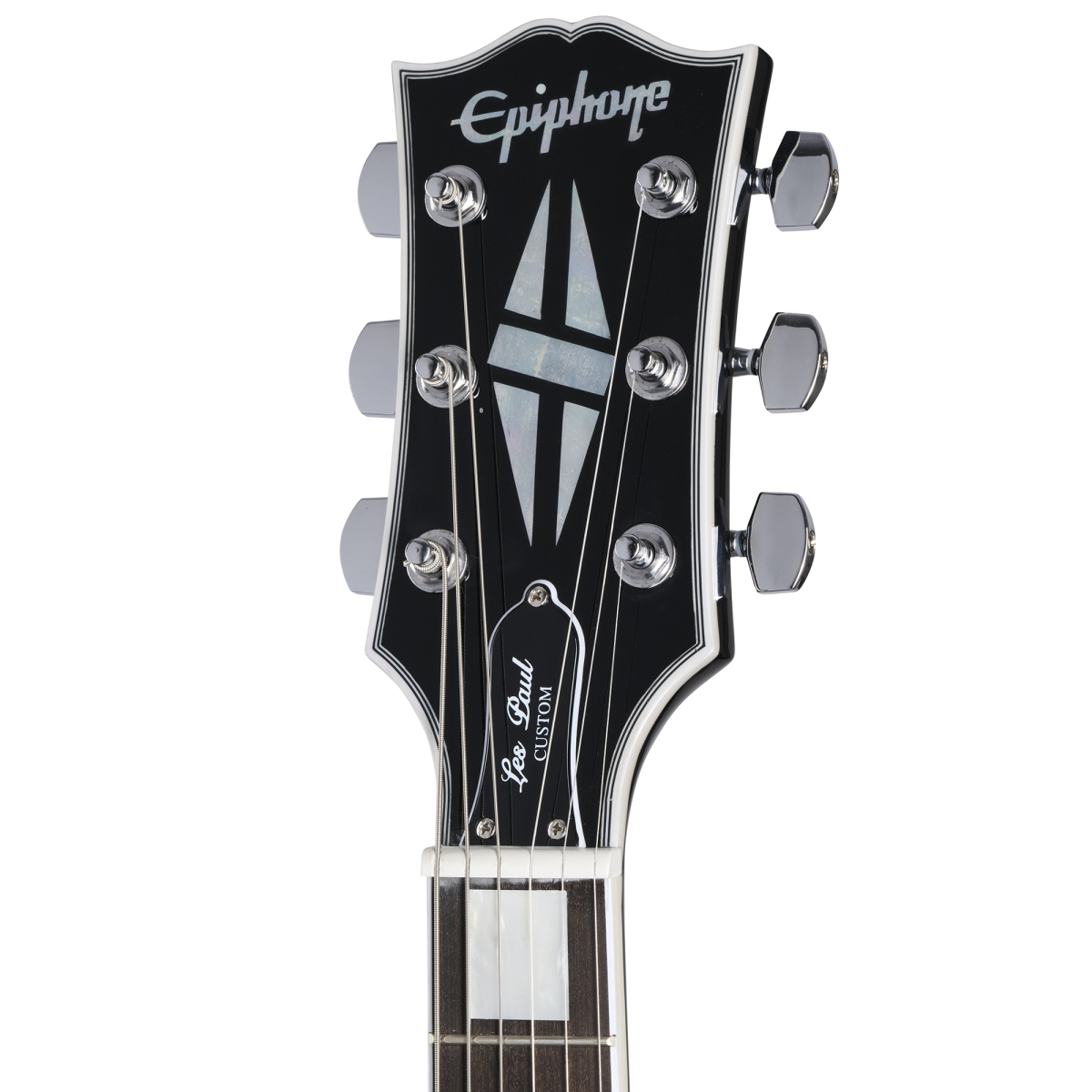
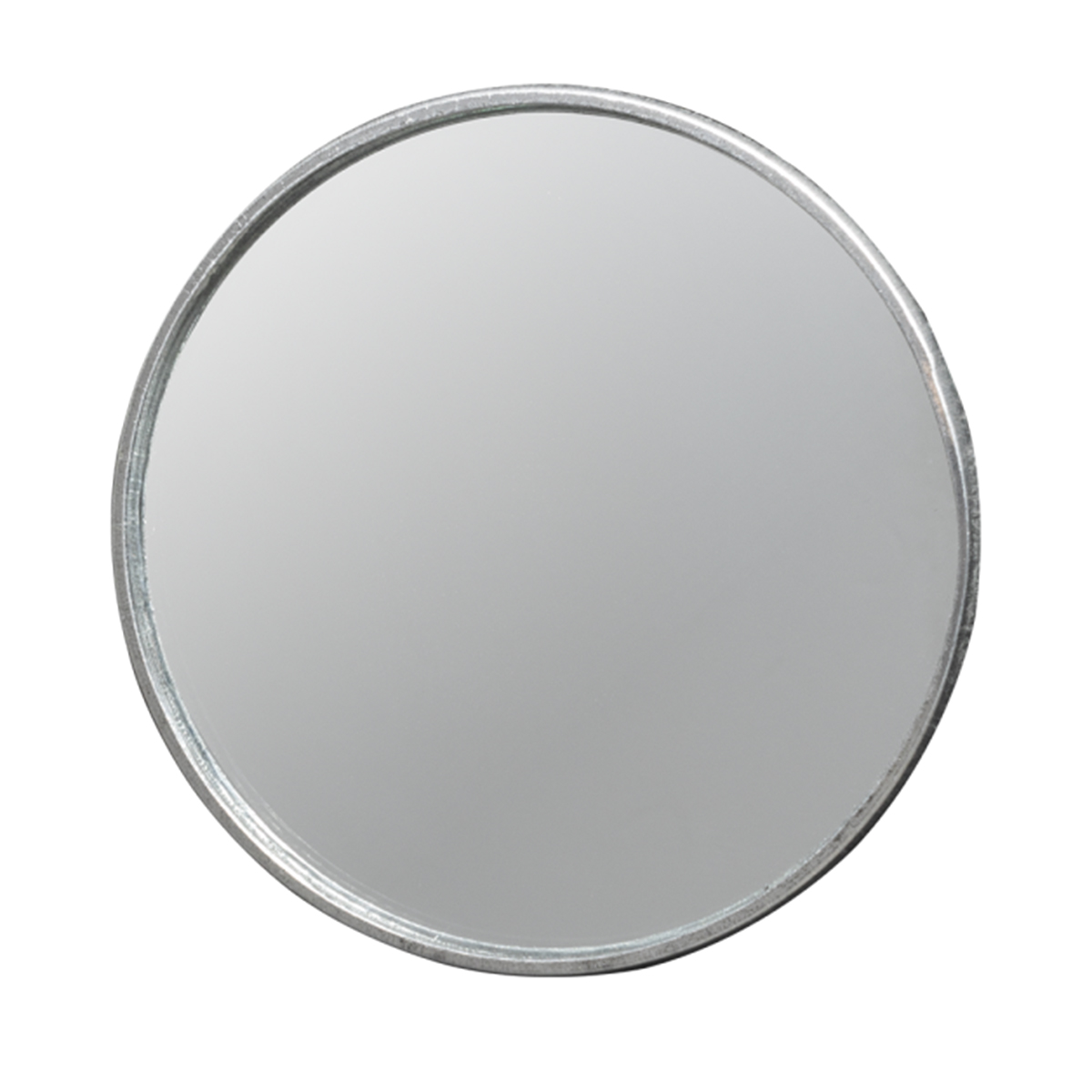
It even includes a two-inch convex mirror in the case, a la Jones own model, for any completists who might wish to adorn the guitar with it. Finally, there’s a very solid Deluxe Protector Series case thrown in for the price.
And what of the price? Well, anyone crossing their fingers and hoping for a saving on the Epiphone Kirk Hammett Greeny is out of luck here, as – like the Greeny – it again lands at $1,499. Clearly, that’s just going to be the new normal when it comes to these more exclusive Inspired by Custom Shop builds.
It is, nonetheless, still half the price of the Gibson Adam Jones 1979 Les Paul Custom and a fraction of the $5,999 or $9,999 price tags of the Custom Shop builds.
The Adam Jones LP isn’t the only big signature model on the way from Epiphone this year.
Last month, we got an exclusive preview of the forthcoming Epiphone Dave Grohl DG-335, one of the “most-requested models in Epiphone’s history” and likely a shoo-in for the year’s best-selling signature guitar.
For more information, on the Adam Jones 1979 Les Paul Custom, head to Epiphone.

Matt is Deputy Editor for GuitarWorld.com. Before that he spent 10 years as a freelance music journalist, interviewing artists for the likes of Total Guitar, Guitarist, Guitar World, MusicRadar, NME.com, DJ Mag and Electronic Sound. In 2020, he launched CreativeMoney.co.uk, which aims to share the ideas that make creative lifestyles more sustainable. He plays guitar, but should not be allowed near your delay pedals.
“It holds its own purely as a playable guitar. It’s really cool for the traveling musician – you can bring it on a flight and it fits beneath the seat”: Why Steve Stevens put his name to a foldable guitar
“Finely tuned instruments with effortless playability and one of the best vibratos there is”: PRS Standard 24 Satin and S2 Standard 24 Satin review
